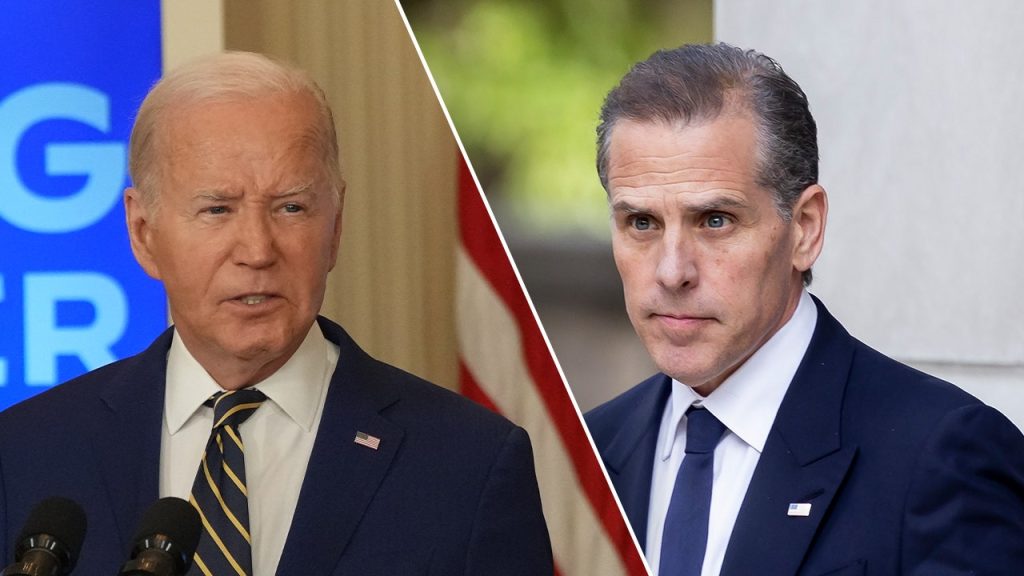President Joe Biden made the decision to exit the presidential race in July due to the struggles of his son, Hunter Biden, that left him with a sense of guilt that overshadowed major international conflicts. In Bob Woodward’s book, “War,” he provides insights into both the Trump and Biden presidencies during moments of vulnerability. Following a disastrous debate performance, pressure mounted for Biden to withdraw from the race, with fears growing that he was no longer fit to compete against Donald Trump. Biden initially resisted dropping out but ultimately made the decision to step down, influenced by the legal troubles surrounding his son.
As Woodward’s book reveals, Secretary of State Antony Blinken played a key role in helping Biden come to terms with the need to exit the race. During a private lunch on July 4, Blinken questioned Biden about whether he truly wanted to continue in a grueling presidential campaign for the next four years. The toll of Hunter Biden’s legal and personal challenges weighed heavily on the president, who was torn between his paternal instincts to protect his son and the recognition that his own presidency had contributed to the scrutiny surrounding Hunter. Despite facing significant international crises during his first term, it was Hunter’s struggles that seemed to affect Biden the most.
Biden’s inner turmoil over his son’s difficulties left him heartbroken and preoccupied, according to sources close to the president. The book describes Hunter’s situation as Biden’s “real war,” reflecting the ongoing battle to shield his son from further harm. Despite his best efforts to help Hunter, Biden was unable to pull him out of the abyss he found himself in. While it remains unclear how Hunter’s legal troubles factored into Biden’s decision to withdraw from the race, it was one of many personal and political considerations that led to his departure from the presidential contest.
“War” offers a candid look at the emotional struggles that President Biden faced during his time in office, shedding light on the personal toll that his son’s challenges took on him. The book underscores the difficulty of balancing familial responsibilities with the demands of the presidency, especially when personal matters intersect with political decisions. While Biden’s decision to withdraw from the race may have been influenced by a range of factors, the impact of Hunter’s situation on the president’s state of mind is highlighted as a significant aspect of his decision-making process.
Ultimately, the book provides a deeper understanding of the internal struggles that President Biden faced, both as a leader navigating complex geopolitical challenges and as a father grappling with personal adversity. By offering insights into Biden’s decision-making process and the factors that influenced his choice to step down from the race, “War” serves as a reminder of the human side of politics and the weight of personal challenges on those in positions of power. With its release on October 15, the book will provide readers with a nuanced perspective on the complexities of leadership and the intersection of personal and political dynamics in the highest office.













